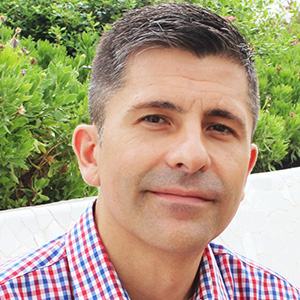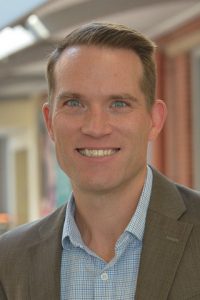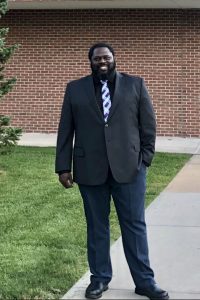Check out the highlights from the HESA Program’s latest e-newsletter.
HESA Spring 2023 Newsletter
March 17, 2023
March 17, 2023
Check out the highlights from the HESA Program’s latest e-newsletter.
February 24, 2023
Dear UConn HESA Alums,

I hope this newsletter finds you and your loved ones well, and that your start to 2023 has been fulfilling and full of beautiful moments.
There continues to be great things happening in our dynamic Program, some that I wanted to share with you here.
In early January, we admitted approximately 65 students to our Program, and hosted our Admitted Students Weekend (ASW) on February 12th and February 13th. On February 12th we held sessions to introduce admitted students to our academic program and on February 13th they interviewed for HESA-Affiliated Graduate Assistantships. I look forward to sharing more about our incoming students during our fall newsletter.
It is never too early to begin recruiting for the next group of HESA students, so if you know of any prospective students who might be interested in joining our Program please have them contact me to find a time to meet. I especially enjoy receiving emails from prospective students who share that an alum recommended they contact me to learn more about our Program.
We are collecting practicum opportunities for the fall 2023 term. Practicum can be in-person or virtual, so if you are an alum a far distance from Storrs, this is your opportunity to supervise and mentor a current UConn HESA student. To get more information about hosting a practicum opportunity go here and you submit a potential site here. If you have any inquiries about how to host a practicum opportunity, please contact Dr. Adam McCready.
We are gearing up for our UConn Gives campaign where we will be asking our alumni and friends of the Program to consider donating to the Sue Saunders fund. UConn Gives will be March 8th and 9th. All the money raised goes to fund students’ professional development activities.
This academic year, those funds have allowed or will provide students the ability to attend conferences (e.g., ACPA Annual Convention, NASPA Annual Conference, NASPA Region 1 Conference, Association for the Study of Higher Education [ASHE] Annual Meeting) and other professional development opportunities. We had less than $2,500 to offer students, and nearly 25 students who applied for funding. As you can imagine, we are eager to support our students’ professional development and would love to have more funds to provide our wonderful students. To consider giving please visit this link.
Speaking of conferences, UConn will be well represented at the upcoming ACPA Annual Convention in New Orleans. Several faculty, current students, and alum will be attending and we will be hosting a gathering on Sunday, March 26th. Please follow our LinkedIn page to get more information about presentations UConn faculty and students will be presenting and details about our gathering.
Please do not forget about sharing all the great things happening in your worlds—good news, publications, promotions/new jobs, programs developed, and more. To let us know, please complete our HESA Insider. We plan to highlight some of these good news on our social media platform, website, and/or future newsletters.
Also, I encourage you to follow us on Instagram, Twitter, and LinkedIn.
Wishing you a positive conclusion to the 2022-2023 academic year, for those of us who are on an academic calendar!
Take care . . . cuídense!
Kenny Nienhusser, EdD (él, he, him, his)
Associate Professor and Program Coordinator, Higher Education and Student Affairs
Faculty Director, La Comunidad Intelectual
October 6, 2022
Dear HESA UConn Alumni,

Greetings from Storrs! I hope this newsletter finds you well. While we continue to confront challenges in our society, on our campuses, and in our profession, I hope you are able to center your needs and those of your loved ones in everything that you do.
Let me transition to some exciting program updates. In true UConn HESA fashion, there has been much going on in our vibrant learning community in recent months. This semester we greeted our first-year and continuing cohorts to campus for our welcome events in late August. This semester we have nearly 30 students who are enrolled in our courses.
We are in the second year of our pilot admissions process, and I am delighted to report that it is going well. We continue to offer a rich number and type of Assistantships throughout our campus. In fact, this past year we welcomed some new HESA-Affiliated Graduate Assistantships in the Center for Academic Programs (CAP)/Student Support Services (SSS) and Academic Center for Exploratory Students (ACES) to our learning community. Additionally, we have begun to admit students who are able to enroll part-time in our program, all of them full-time HESA professionals. Given our program’s emphasis on equity, we are excited to welcome this new group of students into our program. The combination of students who hold a Graduate Assistantship and Practicum and others who have full-time employment allows us to continue to our work to center praxis in the development of scholar-practitioners.
We are actively recruiting for our next group of UConn HESA students, please encourage interested students to attend one of our upcoming information sessions. More information about our program and admissions process, including how to sign up for an information session, can be found here.
Also, as a reminder, we are actively recruiting students for our PhD concentration—Higher Education, Racial Justice, and Decolonization (HERJD)—in the department’s Learning, Leadership, and Education Policy Program. More information about the HERJD PhD concentration can be found here and inquiries can be sent to Dr. Saran Stewart.
We are looking to host some alumni events as our faculty present their work and represent our program at regional and national conferences. Please be on the lookout for emails sharing information about those events, including an event we will host on our UConn, Hartford campus on Tuesday, November 15th 5pm-7pm during the NASPA Region 1 Conference. The UConn Foundation will send an email invitation shortly. If you do not receive an invitation, please email us at hesa@uconn.edu so we can make sure you receive it. We hope you can join us!
Additionally, we are continuing initiatives started last year to further engage with our alumni. We want to know about all the great things happening in your worlds—good news, publications, promotions/new jobs, programs developed, and more. To let us know, please complete our HESA Insider form. We plan to highlight some of these good news on our social media accounts, website, and/or future newsletters.
And speaking of our alumni, in the spring, Ryan Haynes ’20, Residence Life Coordinator, Pomona College, joined the Neag School Alumni Board. A special congratulations and thank you to Ryan for agreeing to serve in that important work.
Another way to get involved with our program is to consider hosting a practicum opportunity for a current student. We are currently collecting practicum opportunities for the spring 2023 term. Practica can be in-person or virtual, so if you are an alum far from our Storrs campus, this is your opportunity to supervise and mentor a current UConn HESA student. To see more information about hosting a practicum opportunity and how to submit a potential site you can go here. If you have any inquiries about how to host a practicum opportunity, please contact Dr. Adam McCready.
Also, I encourage you to follow us on Instagram, Twitter, and LinkedIn. We enjoy hearing about all the wonderful work our alumni and campus partners are doing, so do contact us via email and/or by tagging us.
Wishing you a wonderful remainder of 2022 and that 2023 brings you health, joy, and more good news for you to share with the UConn HESA community!
Take care . . . cuídense!
H. Kenny Nienhusser, EdD (él, he, him, his)
Associate Professor and Program Coordinator, Higher Education and Student Affairs
Faculty Director, La Comunidad Intelectual
June 6, 2022

The Higher Education and Student Affairs (HESA) program in the Neag School’s Department of Educational Leadership focuses on building “Scholar-Practitioners.” HESA promotes the development of professional knowledge based on theory and practice, enhanced by personal values, lived experiences, self-reflection, and ethical conduct.
Adam McCready, assistant professor-in-residence of Higher Education and Student Affairs, says that the term “Scholar-Practitioner” lies in the interaction between knowledge and an individual’s practice.
“The HESA Program believes that it is fundamental to a student’s success to develop an identity as a Scholar-Practitioner,” McCready says. “The field of higher education is constantly evolving. Promoting a commitment to lifelong learning and development helps folks improve as practitioners or future scholars.”
“We provide a forum for students to seek opportunities to learn and grow,” he says
McCready’s research focuses on critically examining the college student experience and offering recommendations for practice in higher education and student affairs. By engaging in service directly related to his field, he hopes to provide excellent learning to his students. He encourages students to learn from theories and create informal theories through knowledge gained from practice.
“We hope to develop reflective and inclusive Scholar-Practitioners who work to address structures that marginalize or oppress students and other stakeholders,” McCready says, “We want to create a framework for students to engage in social justice throughout their careers in higher education and beyond.”
McCready believes creating an equitable higher education landscape is a necessary and inevitable goal.

Sade Erinfolami ’22 MA says that “Scholar-Practitioner” is about finding where scholarship and direct student service converge and learning to use that scholarship to inform one’s practice. Erinfolami finds value in understanding the basic tenets of college student development, critical race theory, and scholarships surrounding international student support to inform her practice.
“At HESA, it was a great experience. I enjoyed my college student development course,” she says.
The HESA program encourages students to learn from direct experiences and reflect on them to master skills and principles. The experiential learning opportunities are facilitated through graduate assistantships and practicum experiences in addition to classroom learning.
As part of Erinfolami’s learning, she conducted informal research on international students and international student support. In addition, she worked at the UConn Law School in the international and graduate program.
“I got a chance to work with exchange students,” Erinfolami says. “The scholarship I found on international students’ engagement and acclimation to the American university environment was helpful.”
“This experience was beneficial in informing her practice moving forward,” she recalls.
Erinfolami also worked in the UConn Dean of Students office, as part of a practicum experience, on the UConn Storrs campus and engaged in one-on-one student advising support and case management.
“It was fantastic because I could grow my counseling, advising, and advocacy skills,” she says. “That was one of the best practical experiences. I learned to build on what we’ve learned throughout our coursework. The best thing I have gotten from the HESA program is how to be an advocate.”

saac Barber, a HESA-affiliated graduate assistant supervisor and director of Student Union and Event Services, plays a crucial role in supporting the HESA program.
“It is important to spend time learning, refining, and building the foundation of the actual discipline instead of looking at them as mere concepts,” Barber says.
“You must provide the learning opportunities and space for people to engage. That is how I approach this work and have approached being a part of HESA as a graduate assistant supervisor,” he says.
Barber believes that the HESA program enables students to become better critical thinkers and thus better Scholar-Practitioners.
“The ‘scholar’ part of Scholar-Practitioner is important, as are the outcomes of the HESA program” says Barber. “What a student learns and how a student develops when practicing what they have learned is also important.”
“I hope students get through this program through thoughtfulness and recognizing that the answer isn’t always there,” he says. “You have to reach for it.”
February 7, 2022

The Higher Education and Student Affairs (HESA) program in the Department of Educational Leadership is committed to creating a learning environment for its students that focuses on equity and inclusion. HESA embraces the lived experiences of students from historically marginalized communities such as BIPOC, across all religions, LGBTQIA+, disabilities, and gender identities or expressions.
Tania Flores, a current student, feels that the HESA program does a great job of incorporating equity and inclusion into the classroom and beyond. A better understanding of equity in practice, she says, has helped her think about her pedagogy and the kind of practitioner she would like to become one day. She says she believes that equity and inclusion are frameworks meant to be practiced and lived every day.
“When we think about the issues of equity and inclusion, it is necessary that we do not relegate them to checklist items and instead conceptualize them as integral parts of the work that we are trying to implement every day within the program,” Flores says. “Our professors do a great job at that. It is not something that ever feels like it is ‘tacked on’; equity and inclusion are a running thread throughout the program.”
HESA also aims to deepen the understanding of equity and inclusion through practical experiences. Practicum and graduate assistantships enable the students to transform knowledge into practice.
“When we think about the issues of equity and inclusion, it is necessary that we do not relegate them to checklist items.”
— Tania Flores, Current HESA Student
Flores was a teaching assistant in the Social Justice Leadership, Equity, and Change Ph.D. course with Dr. Saran Stewart, Associate Professor of Higher Education and Student Affairs, and Dr. Frank Tuitt, Professor of Higher Education and Student Affairs and Vice President and Chief Diversity Officer. It was an experience Flores calls “transformative.”
“It pushed me to rethink what equity means in practice, not just as a theoretical conception,” she says. “Such an experience allowed me to bring that knowledge into my assistantship and career moving forward.”
Shalyn Hopley Malko (she/her/hers, HESA ’20), an alumna of the program and now Academic Success Manager at Clark University, says the HESA program prepared her to engage in equity and inclusion work by emphasizing the importance of engagement with peers in her cohort.

“We all have different lived experiences and identities. Having peers to share those ideas and perspectives makes HESA worthwhile,” she says. “This program helped me take those experiences and put them into a larger context of research.”
The HESA program curriculum fosters collaborative learning enriched with knowledge gained from different life experiences. Students work through the curriculum together with the same cohort of students. Hopley Malko recalls having the cohort as a huge benefit.
“HESA’s structure allowed for a diversity of perspectives that you do not get as a professional, just going about your day-to-day,” she says. “You practice, have an assistantship, and also have your classroom learning. It gives more room for vulnerability, something I think is vital for practitioners with dominant identities who want to engage in equity work.”
“We all have different lived experiences and identities. Having peers to share those ideas and perspectives makes HESA worthwhile. This program helped me take those experiences and put them into a larger context of research.”
— Shalyn Hopley Malko ’20 HESA
Another integral element of the HESA program is understanding issues that impact society, how they exist in the U.S. higher education system and institutions, and ways to address them in practice. The faculty at HESA play a vital role in developing leaders who can recognize such inequalities and implement the right policies to dismantle them.

Dr. Stewart (she/her/hers) says that through the HESA program, students become much more attuned with who they are in terms of becoming social justice equity leaders. For her, equity and inclusion in HESA means accepting, nurturing, and supporting students from all backgrounds. Her teaching and research address equity, inclusion, access, critical race theory, and inequities in higher education.
“My research led me to use my capital within higher education as a professor and recenter the voices marginalized within traditional research,” she says. “Equity is providing the resources that the individual needs based on their identities and circumstances. Inclusion is beyond just identities, but their journeys, familial histories, and stories.”
Dr. Stewart also incorporates this mindset in course assignments. For example, she uses analytical self-reflective journals that allow students to use their lived experiences as anchors for knowledge.
“Equity is providing the resources that the individual needs based on their identities and circumstances. Inclusion is beyond just identities, but their journeys, familial histories, and stories.”
— Saran Stewart, Associate Professor, HESA
“We encourage students to bring their whole selves into the learning environment to better understand equity, inclusion, and a lot more. That self-work is essential before they go out into other organizations and do the real work.”

Truth Hunter (she/her/hers, ’14 HESA), current Ph.D. student, is co-instructor for the Structured Dialogue in Student Affairs course. HESA is one of the few programs of its kind that requires a structured dialogue course that focuses on basic approaches to intragroup and intergroup dynamics and implications for personal and educational development of students and student affairs professionals. Truth encourages students, particularly underrepresented students, to develop a scholarly identity, which affirms their intellectual contributions and distinct perspectives in the academy.
“What’s revolutionary about inclusive learning in the intergroup dialogue class is that I am positioned as an instructor to honor what each student brings into the classroom and then think about how the class curriculum can meet students where they are,” she says. “As an educator, I think equity is about removing those barriers that prevent someone from excelling.”
January 4, 2022
Check out the highlights from the HESA Program’s latest e-newsletter.
November 19, 2021
As UConn’s assistant vice president for student affairs and executive director of student activities, Joseph P. Briody ’86 (BUS), ’95 MA, ’96 Ph.D. is a Husky through and through.
From graduating with a bachelor’s in accounting to attaining his master’s in education and his doctorate in higher education administration, Briody shaped his career through an extensive academic career, paired with professional roles in accounting and nonprofit organizations — not to mention his earliest professional experience: dressing as UConn’s quintessential Husky mascot, Jonathan. He was also instrumental in the mascot makeover, and two generations of Briodys have donned the costume. Here, he explores the factors that fueled his academic decisions, the responsibilities and accomplishments of his current position, as well as the effects of the COVID-19 pandemic on his position.
October 28, 2021
October 11, 2021

Dear HESA UConn Alumni,
Greetings from Storrs! I hope this newsletter finds you and your loved ones well as we grapple with the COVID-19 pandemic that continues to engulf our lives.
I thought to begin my inaugural newsletter as HESA Program Coordinator with a story I enjoy sharing with prospective and incoming students. While UConn is composed of about 40,000 members, the acronym “HESA” is widely recognized on our campuses.
When I arrived at UConn, over three years ago I would reveal my affiliation with HESA with colleagues across our campus and they immediately recognized our program, and often they would share how they were connected to our Program (most often through current and/or past students who had assistantship and/or practicum in their offices). I share this experience because our community is a special place and you have contributed to that legacy—working at your assistantship, engaging in your practicum, connecting with and supporting the thousands of students who made their way to our offices, participating in campus activities, and countless other ways. That legacy is the foundation we use to continue to strengthen our program and develop HESA professionals to be the next generation of change agents on our college campuses and in our society.
Now, let me transition to some program updates. In true HESA fashion, there has been much going on in our vibrant community in recent months. This semester we greeted our first- and second-year cohorts to campus for our welcome events, which were held in person in late August. Our first-year cohort has a slightly adjusted program of study, including some revised titles of our course. You can view those modifications here.
Recently, the HESA faculty decided to pursue a pilot admission process, which makes some slight adjustments to how we have admitted students in the past. While this pilot admissions process unfolds, we remain committed to support the learning, development and growth of HESA students as practitioners who are grounded in our field’s scholarship. In particular, we strongly believe that practical experiences in higher education and student affairs are vital to the learning and success of our students, and are committed to identifying and placing HESA students in graduate assistantships, practica, and other professional experiences relevant to our HESA practice. I encourage you read that information in this edition of HESA Happenings.
We are actively recruiting for our UConn HESA Class of 2024. Please encourage interested students to attend one of our upcoming information sessions scheduled for Wednesday, October 20, 2021, 5:30pm EDT and Tuesday, Nov 16, 2021, 8:30pm EST. More information about our program and admissions process, including how to sign up for an information session, can be found here.
Last academic year the HESA faculty was successful in getting a new PhD concentration approved—Higher Education, Racial Justice, and Decolonization—in the department’s Learning, Leadership, and Education Policy Program. The title and focus of our concentration align with ACPA’s Strategic Imperative for Racial Justice and Decolonization. We are actively recruiting students for that new program; if you are interested or know of people who might be interested please encourage them to explore our program. More information about the new Higher Education, Racial Justice, and Decolonization PhD concentration can be found here. General inquiries about the new PhD concentration can be sent to Dr. Saran Stewart.
While the faculty have been busy with (re)envisioning our curriculum, programs, and processes, they continue to excel in our field and on our campus. Their work is truly inspirational and at the core of that work is disrupting persistent and systemic inequities in Higher Education while also making campuses more welcoming spaces, especially for minoritized students, including at UConn.
We are launching some new initiatives to further engage with you, our alumni. We want to know about all the great things happening in your worlds—good news, publications, promotions/new jobs, programs developed, and more. To let us know, please complete our HESA Insider. We plan to highlight some of these good news on our social media accounts, website, and/or future newsletters.
Another way to get involved with our program is to consider hosting a practicum opportunity for a current student. We are currently collecting practicum opportunities for the spring 2022 term. Practica can be in-person or virtual, so if you are an alumni a far distance from Storrs, this is your opportunity to supervise and mentor a current UConn HESA student. To see more information about hosting a practicum opportunity and how to submit a potential site you can go here. If you have any inquiries about how to host a practicum opportunity, please contact Dr. Adam McCready.
Also, I encourage you to follow us on Facebook, Instagram, Twitter, and LinkedIn. We enjoy hearing about all the wonderful work you are doing, so do contact us via email and/or by tagging us on social media.
Wishing you a positive conclusion to 2021 and that 2022 brings you health, happiness, and more good news for you to share with the UConn HESA community!
Take care . . . cuídense!
Kenny Nienhusser, EdD (él, he, him, his)
Associate Professor and Program Coordinator, Higher Education and Student Affairs
Faculty Director, La Comunidad Intelectual
October 6, 2021